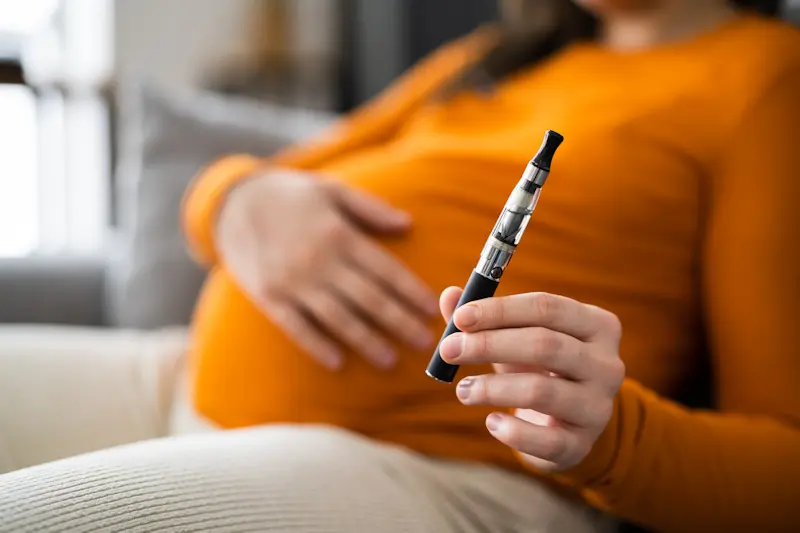
A University of Colorado Anschutz Medical Campus study is being reported and claims “vaping nicotine during pregnancy can be detrimental to the baby”. Newspapers are publishing the claimed findings without looking in depth at how the experiment was conducted or balancing the claims against comments from independent British experts. The upshot is that pregnant women are being scared away from switching from smoking to vaping – so what is the truth?
What does the lead researcher say?
Associate Professor Emily Bates, PhD, said: “Pregnant women are increasingly turning to vaping with electronic cigarettes as a perceived safer alternative to cigarettes. However, nicotine disrupts foetal development, suggesting that, like cigarette smoking, nicotine vaping may be detrimental to the foetus. Nicotine passes through the placenta to foetal circulation where it can accumulate to reach higher levels than in the maternal plasma. This disrupts the development of multiple organs and systems.”
“The popularity of vaping among young people, the addictive nature of nicotine, and the lack of perceived risk suggests that vaping during pregnancy will likely increase over time.”
This sounds like a real problem.
Yes, it does.
Is it a real problem?
Absolutely…if you a mouse in Dr Emily Bates’ laboratory.
A mouse? Mice don’t vape, do they?
Ordinarily, no. Emily took nine mice (which by any research standard is a very small number) and exposed three of them (an even smaller number of mice) to vape.
In the box, the three pregnant mice were made to breathe in vape every twenty seconds for four hours per day. Does this sound like real world vaping behaviour in humans?
What happened at birth?
The vaping mice had smaller litters but the weight of the babies were the same between those three and the six control mice who hadn’t been put into exposure chambers.
This is a crucial finding – even if the numbers involved are wholly unreliable – because smoking during pregnancy in humans has been proven to cause low birth weights. Therefore, claims that vaping is as bad as smoking fall apart at this stage and negate any article written about the experiment.
Oh, and actual studies have been conducted comparing birth outcomes in humans.
Really? What did they find happened to pregnant vapers?
In “Birth Outcomes Associated With E-Cigarette and Non–E-Cigarette Tobacco Product Use During Pregnancy” for example, researchers found: “e-cigarette use during pregnancy was not associated with increased odds of an adverse pregnancy or birth outcome”.
This finding has been mirrored in a study conducted at the University of Nottingham who found birth outcomes were identical between pregnant women who vape and those who don’t smoke or vape.
Last year, findings from the UK National Health Executive found that a record number (15,000) of mothers switched from smoking to vaping. Then Public Health Minister Maggie Throup said: “I am very grateful to NHS maternity staff for helping mums-to-be stub out the habit and reduce the risk of life-threatening complications for women and their babies.”
So vaping is safe for pregnant women?
No, nobody will claim that. The advice is to not smoke or vape during pregnancy – but for smokers who are struggling to quit, women are encouraged to switch to vaping. The NHS says: “If you find using an e-cigarette helpful for quitting and staying smoke-free, it’s much safer for you and your baby than continuing to smoke.”
Plus, earlier this year, Lambeth council took the step to give away vape starter kits to 3,000 pregnant women to help their babies avoid the impact smoke inhalation.
